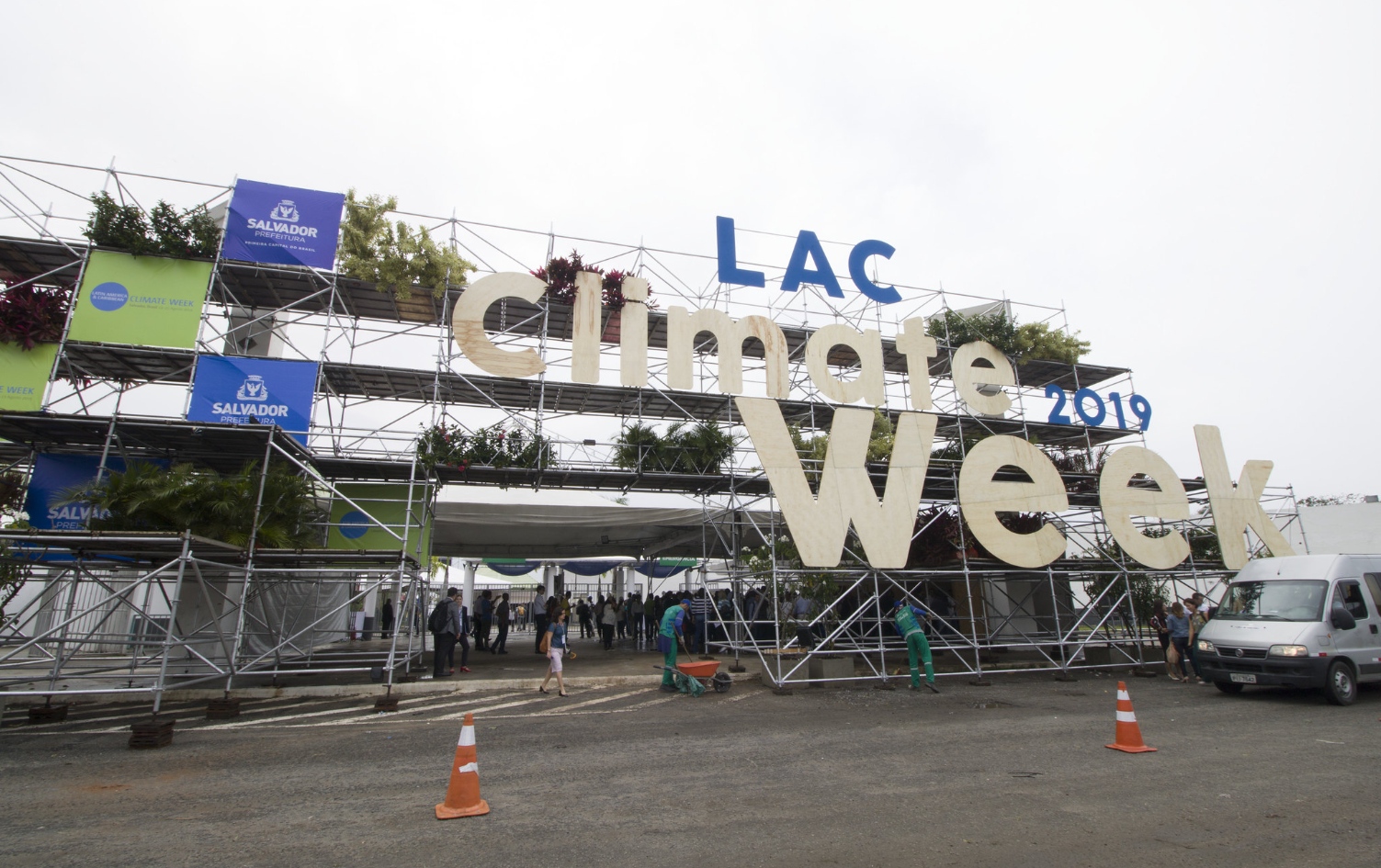
Over 3500 participants participated in the Latin America and Caribbean (LAC) Climate Week 2019 in Salvador de Bahia, Brazil from 19th to 23rd August focused on the implementation of LAC countries’ Nationally Determined Contributions (NDCs) under the Paris Agreement and action to deliver on the SDGs. The event was intended as a stepping stone for the UN 2019 Climate Summit in New York, and December UN Climate Change Conference COP25 in Santiago, Chile.
The Week consisted of two technical days addressing NDC Dialogue focusing on SDG 1 (no poverty), SDG 5 (gender equality) and SDG 7 (affordable and clean energy) amongst others themes, whereas the remaining days were focused on thematic dialogues looking at nature-based solutions in line with SDG 8 (decent work and economic growth), energy transition and infrastructure, cities and local action to advance SDG 1, and long-term strategies and decarbonization under SDG 13 (climate action). For the first time, the NDC dialogue included specific sessions on nature-based solutions and REDD+.
UNDP Climate & Forests team led and facilitated the thematic block on Nature-based solutions (Agriculture and Land Management) that inspired valuable interventions and discussions on the potential provided by nature-based solutions for climate change mitigation and adaptation, as well as increase climate action in enhanced NDCs. Participants proposed potential collaborative initiatives to scale-up action on ecosystem-based adaptation and REDD+ and the agricultural sector, based on existing experiences and lessons learned whilst recommending concrete policies, measures and financial instruments to enhance the full potential of NBS to climate action.
More specifically, the Nature Conservancy and UNDP highlighted the importance of improving the way we are using the land as was widely agreed that we will not be able to meet the food security needs of the population and the the 1.5 degree C goal if we continue going about business as usual. The LAC region has the 25% of the world's forests, 25% of arable land, 31% of freshwater resources at a global level, and 6 out of 18 of the most mega biodiverse countries in the world, figures that bring the region in a high risk and vulnerable situation, due the climate change impact over these resources. There is a need to shift the narrative and acknowledging the importance of forest and landscape restoration are one of the main nature-based solutions actions and the implementation of nature-based solutions as an integral part of the NDCs.
Colombia presented how they have included ecosystem-based adaptation and mitigation in their climate change policies and strategies and that nature-based solutions is now a priority and therefore, part of the NDCs agenda. Grenada on the other hand, highlighted the experience of integrating nature-based solutions into the NDC focused on mangrove restoration and identified opportunities such as increasing capacity and income of the local community, expanding processes for engagement, outreach and collaboration and fostering sustainable use and community empowerment. Countries such as Chile and Ecuador shared their successful initiatives to reduce deforestation at national and subnational levels that are showing concrete results -how to access climate funds through the GCF with a REDD+ results-based payments project. VERRA talked about the use of a revised jurisdictional standard with a landscape approach that is UNFCCC compliant, and addresses the sustainability of the supply chain. IFAD presented its experience of increasing climate resilience and fighting rural poverty through emergency drought action. Grenada’s private sector presented the Belmont Estate Experience on Smart Climate agriculture by promoting production systems based that include drought resistant crops, traditional management, agroforestry, organic certification, agritourism, and traditional skills and knowledge. The Governor of Pará spoke about the need to open to a more dynamic economy, responding to international markets and improve its development index, while conserving their forests by (i) building a state platform to transition to low carbon economy; (ii) regulating rural producers, promoting value chains that are low- emissions that make intensive use of land without opening or clearing new hectares of land; (iii) using technology to increase productivity.
Some key take away messages for the UN SG Summit reiterated that the LAC region can become a frontrunner in climate ambition if it continues to expand on capacity development initiatives, on catalysing new and additional finance, and if it will move towards the completion of the institutional, legal and policy frameworks that allow cross-sectoral implementation of nature-based solutions. The short and medium-term actions to increase ambition are to be targeted towards the enhancement of NDCs which will include the full mitigation and adaptation potential of nature-based solutions whilst also looking at new and additional finance from different sources (Green Climate Fund and markets) for implementation of UNFCCC compliant national and jurisdictional REDD+ programs. Ultimately, the long-term actions (e.g. by 2050) for achieving low emissions and climate resilient development will be geared towards maintaining and improving ecological integrity of all remaining natural forests and terrestrial ecosystems (wild areas) in Latin America and the Caribbean.

